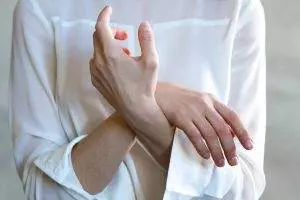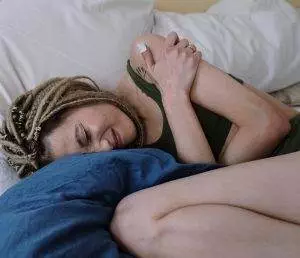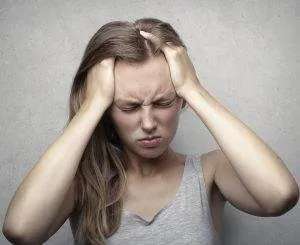-
 Art of Wellness Acupuncture & Traditional Chinese Medicine (TCM)11704 Wilshire Blvd, Suite 295, Los Angeles, CA, 90025
Art of Wellness Acupuncture & Traditional Chinese Medicine (TCM)11704 Wilshire Blvd, Suite 295, Los Angeles, CA, 90025
myartofwellness@gmail.com310-451-5522 Office Hours
MonClosedTue7:30 am --4 pmWed7:30 am --4 pmThu7:30 am -- 4 pmFri7:30 am -- 4 pmSat7:30 am -- 4 pmSunClosedOur office opens from Tuesdays to Saturdays 7:30 am to 4 pm, will be closed on Memorial day, Independent day, Labor day, Thanksgiving day, Christmas and New year.
-
Recent Posts
- How to Treat Rosacea With Acupuncture and TCM
- How to Treat Perioral Dermatitis With Acupuncture and TCM
- Lymphatic Drainage With Acupuncture and TCM
- How to Treat Turf Toe With Acupuncture
- How to Treat Nerve Pain With Acupuncture and TCM
- How to Treat Watery Eyes With Acupuncture and TCM
- How to Treat Ovarian Cysts With Acupuncture and TCM
- How to Treat Dystonia With Acupuncture and TCM
- Can Acupuncture Help Bad Breath?
- How to Treat Atopy with Acupuncture and TCM
- Plantar Fasciosis Treatment With Acupuncture and TCM
- How to Protect Yourself When Air Quality Is Poor
- How to Treat Spinal Headache With Acupuncture and TCM
- How to Treat Sarcoidosis With Acupuncture and TCM
- How to Treat Flu With Acupuncture and TCM
- Chinese New Year 2025 Year of the Snake
- Sign up to receive news and updates and get my free report:“The Top 10 Reasons to Try Acupuncture”

Skin
How to Treat Raynaud’s Syndrome With Acupuncture and TCM
By Qineng Tan, L.Ac., Ph.D. and Xiaomei Cai, L.Ac. Ph.D.

Fingers numb? Numbness in fingers and toes? Fingers turning white, poor circulation in fingers, cold fingers and toes? Raynaud’s disease, or Raynaud’s phenomenon, causes poor circulation in the extremities due to constriction of the blood vessels, usually triggered by cold weather or stress. Acupuncture can help relieve Raynaud’s disease symptoms.
Raynaud’s disease is a condition characterized by occasional narrowing of the blood vessels, primarily in the fingers and toes. The small arteries that supply blood to the skin of the fingers and toes (and sometimes, to the ears and the tip of the nose) become constricted in cold conditions.
Raynaud’s syndrome causes the tips of the fingers and/or toes to turn white due to the lack of circulation, and there may be numbness in fingers or tingling in toes. A “Raynaud’s attack” or episode lasts until the person warms up, at which point, there may be a burning sensation, and the affected skin may flush and turn red as blood flow returns.
Raynaud’s can occur in two forms: primary and secondary.
Primary Raynaud’s, also called Raynaud’s disease, is the more common form and isn’t usually related to another medical condition. Raynaud’s is considered to be an exaggerated response to cold, emotional stress or anxiety, leading to spasms in the small arteries.
People with primary Raynaud’s phenomenon usually begin to experience symptomatic episodes during their teenage years. Women are more likely to have Raynaud’s.
Secondary Raynaud’s is less common but more serious. It is associated with other diseases, typically autoimmune diseases or connective tissue disorders, like scleroderma, rheumatoid arthritis, thyroid disorders, or lupus.
Secondary Raynaud’s can be linked to conditions that directly damage the arteries or affect blood flow, like carpal tunnel syndrome. In these cases, it is considered a symptom rather than a separate condition.
Raynaud’s Syndrome Causes
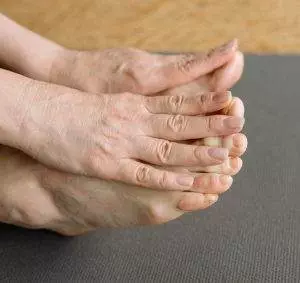
For most people with Raynaud’s syndrome, there is probably a combination of genetic, physiological, and environmental factors at play.
Vascular abnormalities, or dysfunction in the blood vessels, involving excessive narrowing (vasospasm) and poor dilation in response to stimuli, may be involved.
Overactivity of the nerves controlling the blood vessels (sympathetic nervous system) may cause spasms.
Raynaud’s can tend to run in some families. If someone is already susceptible, then the numbness in fingers and toes may be triggered by cold temperatures, or a stressful situation. Smoking cigarettes can also cause Raynaud’s symptoms.
In secondary Raynaud’s, underlying autoimmune conditions can lead to inflammation and damage to blood vessels.
An injury to one of the limbs, like a broken wrist, or damage to the tissues from frostbite, could also trigger Raynaud’s phenomenon.
Some prescription medications, such as beta blockers, ADHD medications, medications for migraine headaches, and even some cold and flu medicines, could cause Raynaud’s symptoms.
Acupuncture treatment can help to relieve Raynaud’s syndrome symptoms and also address the underlying condition that may cause Raynaud’s.
Top 10 Raynaud’s Disease Symptoms
Raynaud’s symptoms may show up differently for each person. Symptoms of Raynaud’s disease can vary in severity and may include:
- Skin changes color: pallor (pale skin, white skin, or yellow skin) in the affected fingers or toes during an episode
- In rare cases, Raynaud’s phenomenon can affect other areas, such as the nose, ears, and lips.
- Some people may experience Raynaud’s in their nipples, which can cause a severe throbbing pain.
- Bluish discoloration (Cyanosis) as blood flow decreases
- Affected areas feel cold and/or numb during an episode
- Throbbing or tingling in the fingers or in the toes
- Sensitivity to cold temperatures, leading to more frequent episodes in cold weather.
- In severe cases, recurrent or persistent episodes of reduced blood flow can lead to skin sores or ulcers, particularly on the fingertips or toes.
- Changes in the texture and color of the nails, including nail beds that turn white and then blue during an episode.
- Some individuals may experience joint pain, particularly if there is an underlying connective tissue disorder.
Emotional stress, anxiety, or rapid changes in temperature can trigger Raynaud’s symptoms.
Raynaud’s disease is generally considered a benign condition, but repeated episodes can lead to more serious problems, like skin sores, chilblains, or even gangrene, which can cause permanent damage to tissues.
Raynaud’s Syndrome Treatment

Diagnosis of Raynaud’s disease may involve a test called nailfold capillaroscopy. This is a non-invasive test that allows the doctor to see the capillary size and action in the tips of the fingers and nail bed. This can help to determine whether the person has Primary Raynaud’s, or may have a connective tissue disorder, like lupus or Sjogren’s syndrome.
The standard medical treatment for Raynaud’s phenomenon aims to manage symptoms, improve blood flow, and prevent complications. While there is no cure for Raynaud’s, various medications and lifestyle modifications can be employed to alleviate symptoms and enhance circulation.
Medications that relax and widen blood vessels, known as vasodilators, are commonly prescribed. Calcium channel blockers, such as nifedipine, are often used to help dilate the small blood vessels in the extremities, reducing the frequency and severity of Raynaud’s episodes.
Phosphodiesterase inhibitors like sildenafil (which is also commonly prescribed to help erectile dysfunction, ED) can sometimes be beneficial in promoting blood vessel dilation and improving blood flow.
In some cases, topical nitroglycerin cream may be prescribed to increase blood flow to the affected areas.
Endothelin receptor antagonists, such as bosentan, may be considered in cases where blood vessel constriction is severe. These medications target endothelin, a substance that can cause blood vessels to narrow.
Antiplatelet agents like aspirin may be recommended to reduce the risk of blood clots and improve blood circulation.
If Raynaud’s is secondary to another condition, treating the underlying cause is crucial. For example, if it is associated with an autoimmune disorder, immunosuppressants might be considered.
Lifestyle changes play a significant role in managing Raynaud’s symptoms. Patients are typically advised to dress warmly.
Quitting smoking is strongly recommended, as smoking constricts blood vessels.
Can Acupuncture Help Raynaud’s Syndrome?
TCM has acknowledged Raynaud’s phenomenon as a condition of severe cold in the limbs for centuries. According to TCM theory, a deficiency of Qi and blood circulation is the root cause of Raynaud’s symptoms. In TCM, we consider that Qi (life force energy) and blood work together; Qi moves the blood throughout the body, and blood carries the Qi throughout the body.
In TCM, we are always looking at both external factors and internal factors that contribute to a condition. In the case of Raynaud’s disease, cold acts as a pathogenic factor that can be already present inside the body, and then, when a person is exposed to cold temperatures as an external factor, this triggers an extreme reaction.
So, in many cases, a person suffering from Raynaud’s is already dealing with too much cold and poor blood circulation. Herbs can be used to help warm the body internally and increase blood flow.
Some people develop Raynaud’s symptoms in response to stress. In this case, the liver may be involved. In TCM, the liver is associated with strong emotions, and when the liver is distressed, it can trigger muscular contractions that squeeze the blood vessels, restricting blood flow. In these cases, we will use herbal formulas and acupuncture points to help restore balance in the liver.
When there is an autoimmune disease also present, such as scleroderma or lupus, then there may also be blood stasis, and a thickening of the blood and tissues. TCM can address those conditions at their roots, as well.
An acupuncturist will make careful observations about how each individual is experiencing Raynaud’s symptoms, and address it according to the pattern presenting.
Top 3 Tips for Managing Raynaud’s Syndrome Symptoms

You can help prevent Raynaud’s attacks by keeping your whole body warm, especially your hands and feet.
- Protect your hands and feet. Wear mittens or gloves, thick socks and lined boots, and use hand and foot warmers in cold weather. Consider wearing gloves or oven mitts when reaching into the refrigerator or freezer.
- Exercise regularly, both to stimulate healthy blood circulation, and to help manage stress levels.
- If hands and/or feet do begin to feel cold or numb, take action to warm them up immediately by wiggling them, running them under warm water, massaging them, or putting your hands in your armpits or against your abdomen under your clothing.
Acupuncture Near Me for Raynaud’s Syndrome in West Los Angeles
It is important to address Raynaud’s disease to avoid damage to the nerves and skin tissue in your extremities, and to be sure whether or not Raynaud’s symptoms are related to an underlying autoimmune disorder. The acupuncturists at Art of Wellness Acupuncture in West L.A. have over 35 years of experience helping people with autoimmune conditions, circulatory problems, and nerve pain and tingling. The combination of herbs and acupuncture treatment can help relieve Raynaud’s phenomenon symptoms and address any autoimmune disease or nerve conditions.
*This article is for education from the perspective of Traditional Chinese Medicine only. The education provided by this article is not approved by FDA to diagnose, prevent, treat and cure human diseases. It should not stop you from consulting with your physician for your medical conditions. Traditional Chinese Medicine is based on Qi, which is an invisible force that usually cannot be observed by modern science. Because science focuses on testing ideas about the natural world with evidence obtained through observation, these aspects of acupuncture can’t be studied by science. Therefore acupuncture and Chinese herbs are often not supported by double-blind, randomized trials, and they are considered alternative medicine therapies in the United States.
How to Treat Autoimmune Disorders With Acupuncture and TCM
By Qineng Tan, L.Ac., Ph.D. and Xiaomei Cai, L.Ac., Ph.D.
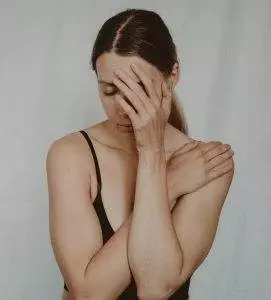
Autoimmune disorders are on the rise, and they can be difficult to diagnose and treat. Acupuncture and TCM offer relief from autoimmune disease symptoms, while addressing the root of what might cause autoimmune disorders.
What is an autoimmune disease? The human immune system creates a variety of antibodies that are designed to fight off bacteria, viral infections, cancer cells, and toxins. An autoimmune disorder occurs when your body’s immune system malfunctions in some way and creates antibodies that attack healthy cells instead of dangerous ones. Different autoimmune disorders cause damage or dysfunction in different organs or systems of the body.
A recent study, based in the UK, looked at 19 prevalent autoimmune diseases and found that autoimmune disorders affect about one in ten people (13% of women and 7% of men).
Another study published in Arthritis and Rheumatology a few years ago, found that the most common biomarker of autoimmune disease—a high number of antinuclear antibodies (ANA)—has risen significantly across the US population, and particularly among certain groups, including adolescents, and people over 50. This study suggests that the chance of developing an autoimmune disorder is higher than ever.
Medical science has named over 80 different types of autoimmune diseases, but the understanding of what causes autoimmune disorders is still murky. Many people with autoimmune disorders go undiagnosed, and even when doctors are able to diagnose an autoimmune condition, there is no cure.
Autoimmune disorders do tend to run in families, which suggests that some people are more likely genetically disposed to develop an autoimmune disease. It is also common to have more than one autoimmune disorder concurrently. Having two or more autoimmune diseases is known as polyautoimmunity.
A few of the most common combinations of autoimmune disorders are:
- Scleroderma, autoimmune thyroid disease, and/or rheumatoid arthritis (RA)
- Myasthenia gravis and dermatitis herpetiformis
- Addison’s disease and vitiligo
TCM has treated many of these autoimmune disorders for centuries, although we may categorize them differently. The TCM view is that most autoimmune diseases are rooted in imbalances and deficiencies in the organ systems.
Stagnation of blood and Qi, and problems like excess heat and dampness in the body lead to inflammation, which is at the root of so many health problems. When systemic inflammation is reduced, the immune system can regain its proper functioning.
Acupuncture treatment is able to effect changes in the way cells are developing and functioning at the ectodermal and mesodermal layers. Acupuncture can stimulate the production of healthy cells, reduce inflammation, balance hormones, induce endorphin activity, and release peptides that improve immune function.
Top 20 Most Common Autoimmune Disorders
These are the most common autoimmune diseases, not necessarily in order. Some autoimmune disorders have significantly increased in numbers in recent years, including Celiac disease, Sjogren’s syndrome, and Graves disease. Some autoimmune conditions, like Hashimoto’s and pernicious anemia, seem to have decreased in numbers. Some autoimmune conditions have seasonal variations; for example, vitiligo is more commonly diagnosed in summer.
-

Swollen, stiff joints and painful swelling in limbs can be a symptom of lupus, RA, and other autoimmune disorders. Lupus – is an autoimmune disorder that disproportionately affects women and causes systemic inflammation, fatigue, swollen joints and limbs, and often a characteristic “butterfly rash” or “malar rash” across the face. Lupus flare-ups can be caused by stress or light exposure. According to TCM, lupus is often related to a build up of too much heat in the body, so acupuncture treatment for Lupus and herbal remedies will usually focus on removing blood stasis and clearing heat from the internal organs. TCM for Crohn’s can be used as an adjunct treatment, and may help people rely less on cortisone steroids to control inflammation.
- Crohn’s disease – is an autoimmune IBD (inflammatory bowel disease) that impacts the gastrointestinal tract, causing diarrhea, stomach pain, and bloody stool. Antibodies attack the gut bacteria that are normally a healthy part of digestion, causing inflammation and damage to the intestinal lining. Acupuncture treatment for Crohn’s disease can help reduce inflammation, repair tissues, and improve the balance of gut flora. It can also positively affect the parasympathetic nervous system that controls the action of the digestive tract, reducing stomach cramps and diarrhea.
- Rheumatoid Arthritis – an autoimmune disorder that causes joint pain and swelling, because antibodies attack the synovium, the soft tissue membranes that line joints. RA can also impact the blood vessels and cardiovascular system. RA can lead to bone loss over time, and people with RA are more prone to pneumonia and heart disease. TCM theory considers Rheumatoid arthritis to fall under the category of “Bi syndromes,” in which cold, wind and damp affect the body as pathogenic forces, causing blockages of Qi. Acupuncture can help reduce joint stiffness and pain.
- Graves disease – also known as hyperthyroidism, or overactive thyroid, Graves disease causes too much thyroid hormone to be produced, causing Graves disease symptoms like: goiter, enlarged thyroid, digestion problems, weight loss, tremors, sweating, insomnia, and infertility. Many people also have Graves ophthalmopathy, which causes bulging eyes, eye pressure, and blurred vision. TCM works to address yin deficiency and liver stagnation. Studies have shown that acupuncture and herbs can help balance the thyroid hormones.
- Multiple sclerosis (MS) – occurs when antibodies attack the myelin sheaths around nerves, leading to muscle weakness, numbness in limbs, dizziness, spasms, ataxia, or problems with balance, tremors, and trigeminal neuralgia (facial nerve pain). Acupuncture has been used to help relieve many of these symptoms of MS for hundreds of years, and can help improve and maintain motor skills.
-

Abdominal pain, stomach cramps, and gastrointestinal distress can be signs of Celiac disease, Crohn’s disease, or Ulcerative colitis. Celiac disease – is an autoimmune condition in which the body perceives dietary gluten to be a threat, triggering an immune response that creates inflammation and damage to the intestinal tract. Following a gluten free diet is important, and a TCM health practitioner is trained in nutrition to help patients make the necessary changes to ensure nourishment and prevent anemia. Acupuncture and herbs can also help repair intestinal tissues and bring down inflammation.
- Myasthenia Gravis – causes antibodies to attack nervous system receptors in the muscles, especially of the face, causing the eyelids to droop and making it difficult for a person to perform some movements related to the eyes, mouth, and throat. Muscle weakness and communications between the nervous system and the muscles can be helped with acupuncture treatment, and patients may be able to regain strength and reduce steroid usage.
- Scleroderma – is an autoimmune disease in which the body is producing too much collagen. Scleroderma causes hardening and thickening of the skin, and can affect connective tissues like cartilage. In extreme cases, Scleroderma can cause scarring on internal organs. TCM diagnosis may determine that Scleroderma is happening due to blood stagnation, and Chinese herbs have been shown to help manage collagen production.
- Hashimoto’s Disease or Hashimoto thyroiditis – also known as hypothyroidism, chronic thyroiditis, or low thyroid, Hashimoto’s causes too little thyroid hormone to be produced. Hashimoto’s low thyroid symptoms include: swollen thyroid, fatigue, weight gain, brain fog, and depression. Acupuncture addresses weak kidney and liver qi, and helps to balance TSH and thyroid hormone levels.
- Pernicious Anemia – is a specific type of autoimmune anemia that occurs when the intestinal lining is not able to absorb enough Vitamin B12. Aplastic anemia is another type of autoimmune anemia, in which antibodies are attacking the bone marrow, so it cannot produce enough blood cells. Acupuncture and TCM herbs can help boost blood deficiencies that cause anemia symptoms and help to repair the lining of the intestine to improve its function.
- Addison’s disease – also known as adrenal insufficiency, or adrenal fatigue, is an autoimmune disease that attacks the adrenal cortex, so that the body does not make enough cortisol. Addison’s disease symptoms include: fatigue, dehydration, loss of appetite, salt cravings, dizziness, low blood pressure, and joint pain. TCM views Addison’s primarily as a kidney deficiency that can be treated with acupuncture, herbs, and moxibustion to support kidney function.
- Vitiligo – an autoimmune disorder that affects melanin, or skin pigmentation, causing white patches on skin, and hair turning gray or white, and can affect eye color and vision. Acupuncture treatment and herbal remedies can be used as an alternative treatment for vitiligo, or as an adjunct to conventional treatments like light therapy and steroid medications, to help with repigmentation of skin and to help treat vitiligo at its roots.
- Ehlers-Danlos syndrome – affects the way the body produces collagen, leading to a connective tissues disorder, which in some cases creates hypermobile joints, stretchy and/or thin skin, and bruising. There are many different presentations of EDS, affecting different parts of the body. Acupuncture and Tuina massage can improve muscle tone, help with healing and reduce pain.
- Psoriasis – an autoimmune skin condition that causes too many skin cells to form, creating hard, scaly patches of skin, especially on the elbows and knees. As with many other autoimmune disorders, psoriasis tends to come and go; flare-ups can be triggered by a cut on the skin, an infection, or emotional stress. TCM theory says that psoriasis occurs due to pathogenic heat and dryness in the body; treatment will focus on strengthening lung Qi and clearing blood heat and stagnation.
- Autoimmune hepatitis – which has also been called plasma cell hepatitis or lupoid hepatitis, occurs when the immune system mistakenly attacks liver cells, causing fatigue, abdominal pain, and joint pain. People who already have an autoimmune disease, including Type 1 diabetes, Celiac disease, or Graves disease, are more likely to develop autoimmune hepatitis. Acupuncture and herbs are excellent for helping to repair the liver and improve liver functioning.
- Dermatitis herpetiformis – also known as Dhuring’s disease, is a bumpy, blistered skin rash, similar in appearance to herpes sores or hives. This autoimmune skin condition is related to Celiac disease, flaring up when a person ingests gluten. Acupuncture helps to relieve inflammation and itchy skin and promote healing, while clearing heat and stagnation from the lungs, which are often connected to skin disorders.
- Ulcerative Colitis – is an IBD (inflammatory bowel disease), similar to Crohn’s disease, in which the immune system attacks the lining of the colon, causing sores and inflammation to develop, which leads to frequent diarrhea, abdominal pain, and bloating. TCM uses herbs and acupuncture to clear heat and dampness from the colon and promote healing of the intestinal tissues. Moxibustion can help relieve cramping and diarrhea.
-

Severe headaches and brain fog can be signs of autoimmune encephalitis. Autoimmune Encephalitis (AIE) – causes inflammation of brain tissues, causing severe headaches, brain fog, and neck pain and stiffness. This condition can develop in response to an infection. Anti-NMDAR encephalitis can be related to a tumor called a teteroma. TCM treats the internal heat that leads to fevers, infections, and inflammation with cooling herbs, and helps reestablish connections throughout the central nervous system.
- Type 1 Diabetes – is an autoimmune condition in which the cells of the pancreas do not function properly to produce insulin. About 5-10% of people with diabetes have this type. In TCM, diabetes is known as “Xiao Ke,” the wasting disease, and is believed to be due to too much heat and dampness accumulating in the organs. Acupuncture treatment can help improve pancreatic function and insulin production.
- Guillain-Barre syndrome – also known as “acute inflammatory demyelinating polyradiculoneuropathy” (AIDP), is an autoimmune and neurological condition in which antibodies attack the myelin sheaths that surround the nerves, causing muscular weakness, neuropathy and hypertension. A combination of acupuncture and moxibustion treatment can relieve nerve pain and help improve the strength and coordination of the muscles, while helping to encourage the growth and repair of nerves.
Other autoimmune disorders include: ankylosing spondylitis.
Can Acupuncture Help Autoimmune Disorders?
Inflammatory cytokines are part of the immune response that creates inflammation in the body as a way to get rid of invasive pathogens and promote healing when we are injured. When the immune system is not functioning properly, there is excess inflammation, and this is the root cause of many types of autoimmune disease.
Acupuncture treatment has been proven to have a positive biological effect on the production of these cytokines, and may also prevent immune system white blood cells called macrophages from turning into pro-inflammatory cells.
Other TCM modalities, like cupping, activate the immune system and help manage nitric oxide levels. Nitric oxide levels play a role in T-cell regulation, which affects inflammation of joints in patients with systemic lupus and rheumatoid arthritis.
TCM treatment is a holistic way of treating autoimmune diseases that takes the whole person into consideration, treating physical symptoms of pain and stiffness, skin rashes, gastrointestinal distress, and more, while also helping to alleviate emotional and mental health problems like anxiety and depression. Acupuncture can also help improve cognitive function, memory problems, difficulty concentrating, and brain fog.
Acupuncture Near Me for Autoimmune Disorders in Los Angeles and Santa Monica
Autoimmune disorders require highly individualized treatment. If you or someone you know has an autoimmune disease, adding a highly experienced acupuncture practitioner to your healthcare team can make a big difference in your quality of life.
Drs. Cai and Tan and Art of Wellness in West Los Angeles have over 35 years of experience helping treat autoimmune disorders of all kinds. They can bring a new perspective to your healthcare plan and help you find relief from many autoimmune disorder symptoms.
*This article is for education from the perspective of Traditional Chinese Medicine only. The education provided by this article is not approved by FDA to diagnose, prevent, treat and cure human diseases. It should not stop you from consulting with your physician for your medical conditions. Traditional Chinese Medicine is based on Qi, which is an invisible force that usually cannot be observed by modern science. Because science focuses on testing ideas about the natural world with evidence obtained through observation, these aspects of acupuncture can’t be studied by science. Therefore acupuncture and Chinese herbs are often not supported by double-blind, randomized trials, and they are considered alternative medicine therapies in the United States.
How to Treat Vitiligo With Acupuncture and TCM
by Qineng Tan, L.Ac., Ph.D. and Xiaomei Cai, L.Ac., Ph.D.
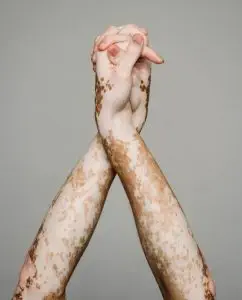
White patches on skin, white spots on face? Graying hair? White patches of skin can be a sign of Vitiligo. Vitiligo is a chronic autoimmune disease that affects the melanin, or pigment, in the skin. Acupuncture and TCM offer a holistic, complementary vitiligo treatment that can help with repigmentation.
Vitiligo occurs when the pigmentation of your skin changes, with white patches on face or other parts of the body. This usually happens because of an autoimmune disorder that affects the cells that create pigment in the skin, hair, and eyes.
Vitiligo can show up in different ways. Possible signs of vitiligo include:
- Lighter patches of skin on face, arms, hands, and/or feet, white patches on skin
- Patches can be pink, tan, or white
- Loss of pigmentation on lips and/or inside mouth
- Loss of pigmentation on or inside the nose
- White patches of skin are itchy sometimes, usually when they are spreading
- Premature graying hair, hair turning gray
- A streak of white hair on scalp develops
- Eyelashes turn white, or eyebrows turn white
- Eye color changes, may affect eyesight
- Inner ear problems, can lead to hearing loss
- Anxiety and depression due to changes in appearance
While vitiligo is not considered harmful, these changes in outward appearance can have a serious impact on the way a person feels about themselves. Vitiligo disease treatment with acupuncture and TCM can help not only with repigmentation, but can help address the underlying causes of autoimmune disease, and mental health concerns, all at the same time.
What Causes Vitiligo?
White patches on skin happen when cells called melanocytes, which produce pigment, either stop functioning correctly or die.
Medical research has not yet determined exactly why some people get vitiligo, but it is generally considered to occur because of an autoimmune condition. When a person has an autoimmune disorder, their immune system mistakenly attacks certain cells in the body. In the case of vitiligo, the immune system attacks the melanocytes.
Some people notice that their vitiligo starts developing after getting a particularly bad sunburn. A regular burn, or exposure to caustic chemicals can trigger the development of vitiligo, as can a bad cut or scrape.
Stress can trigger vitiligo, or make it worse. Both physical stress and emotional stress may often precede either the initial onset of vitiligo, or accelerate the spread of patches of vitiligo on the skin.
Risk factors for Vitiligo
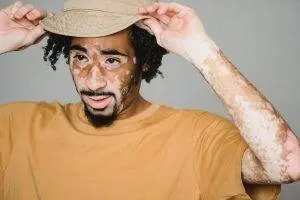
People of all ages and ethnicities can have vitiligo. In about half of cases, vitiligo begins to appear in childhood or before the age of 20.
If other people in your family have vitiligo, or other autoimmune diseases, then there is a greater chance that you will have it.
People who have other autoimmune disorders may have a higher risk of experiencing vitiligo. These autoimmune conditions include:
- Lupus
- Hyperthyroidism
- Hashimoto’s disease
- Graves disease
- Psoriasis
- Rheumatoid arthritis
- Type 1 Diabetes
- Anemia
- Addison’s disease
Having a specific type of moles on your skin called halo nevi can increase your risk for vitiligo. Those are moles that have a white ring, or “halo,” around them.
Having melanoma or non-Hodgkin lymphoma can also increase your risk for vitiligo, as can going through immunotherapy for melanoma.
Even though vitiligo is not considered dangerous, it is important to seek out a proper diagnosis and treatment, because having one autoimmune condition can sometimes lead to developing other autoimmune diseases.
Types of Vitiligo
Vitiligo will develop differently for each individual. Different kinds of vitiligo are categorized according to where they appear. Types of vitiligo include:
- Generalized vitiligo: most common type, causes macules to appear in various places on the body
- Segmental vitiligo: only affects one side of your body or one area, such as the face or hands.
- Mucosal vitiligo: affects the mucous membranes of mouth and/or genitals
- Focal vitiligo: rare type where the macules develop in a small area
- Trichrome vitiligo: shows up as a bullseye shape with a white center, a lighter area, and an area of natural skin tone.
- Universal vitiligo: rare condition that causes more than 80% of skin to not have pigment
Vitiligo Treatment
A doctor will diagnose vitiligo by taking a family history, testing for other autoimmune diseases, checking the skin with a black light, which will make the patches easier to detect, and probably taking a small skin biopsy to check for melanocytes, or lack thereof.
The main aim of conventional vitiligo disease treatment is to slow the spread of the condition, and hopefully to help the skin regain its pigment by helping to encourage the growth of melanocytes.
Immunosuppressant medications can help to slow or halt the spread of vitiligo. Calcineurin inhibitors are a specific type of immunosuppressants that may be prescribed for vitiligo, as well as for other autoimmune disease rash, such as lupus rash.
However, this type of vitiligo treatment requires continued use; when people stop taking the medications, the condition will usually come back and continue to spread.
There are various types of vitiligo therapy that may help skin regain its normal pigmentation. These include:
- Light therapy
- Topical steroid creams
Some dermatology specialists perform surgical procedures to help with repigmentation, but these are not recommended if the condition is still spreading, or if a person tends to develop scarring.
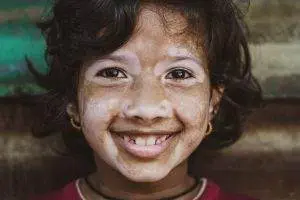
About 50% of vitiligo cases begin in childhood or adolescence. Vitiligo can be particularly difficult and even traumatic for young people. While the treatment methods are similar for children with vitiligo (corticosteroids, phototherapy, and/or immunosuppressants), it is especially important that young patients also receive emotional and mental health support during treatment.
While medical vitiligo therapies help in some cases, other people may not see much improvement. None of these treatments address the root cause of vitiligo. Acupuncture and TCM help by working on several levels, to help restore normal functioning of the immune system, help with repigmentation of the white patches of skin, and to help address issues like anxiety and depression, as well.
Can Acupuncture Help Vitiligo?
Traditional Chinese Medicine (TCM) has been used to treat vitiligo for centuries. TCM treatment for vitiligo was first mentioned in the medical text, The Yellow Emperor’s Classic of Internal Medicine, over 2500 years ago.
In TCM, vitiligo is referred to as “Bai Dian Feng,” which means something akin to “white patches wind.” In TCM, many skin and immune conditions are considered to be related to wind as a pathogenic force that moves through the body.
The development of this autoimmune condition that affects the skin’s appearance can occur due to a particular imbalance, or a combination of factors. Some of the TCM diagnostic patterns that pertain to vitiligo include:
- Liver wind with Kidney deficiency
- Spleen and Stomach deficiency
- Qi and Blood deficiency and/or stasis
- Too much internal heat
Depending on accompanying symptoms, your acupuncturist will observe which organ systems need nourishing and/or clearing, and will tailor a treatment plan for each individual case. A combination of acupuncture treatment and herbal supplements will be recommended to help address your condition.
Acupuncture needles, applied to specific points, can help to improve circulation and blood flow to areas of the skin and activate cells to help restore natural skin color. Other points will be chosen to help move Qi and strengthen the liver and kidneys, as well as reducing overall inflammation and boosting immune function.
Topical herb creams made from traditional Chinese herbal remedies can be effective for helping to stimulate melanin production. Chinese herb formulas designed to be taken internally as a tea will work to nourish the liver and kidneys, dispel wind and clear heat.
Acupuncture Near Me for Vitiligo
Acupuncture and herbs can be used either as an alternative or adjunct treatment for vitiligo. TCM treatment will also work for vitiligo in children, and can be particularly helpful as a gentle modality that does not cause unwanted side effects.
Drs. Tan and Cai at Art of Wellness Acupuncture in West L.A. have over 35 years of experience working with patients with autoimmune skin conditions of all kinds. Art of Wellness was recently named one of the best acupuncture providers in Los Angeles. If you or someone you know is suffering with vitiligo, please do not hesitate to contact us.
*This article is for education from the perspective of Traditional Chinese Medicine only. The education provided by this article is not approved by FDA to diagnose, prevent, treat and cure human diseases. It should not stop you from consulting with your physician for your medical conditions. Traditional Chinese Medicine is based on Qi, which is an invisible force that usually cannot be observed by modern science. Because science focuses on testing ideas about the natural world with evidence obtained through observation, these aspects of acupuncture can’t be studied by science. Therefore acupuncture and Chinese herbs are often not supported by double-blind, randomized trials, and they are considered alternative medicine therapies in the United States.
How To Treat Psoriasis With Acupuncture and TCM
By Xiaomei Cai, L.Ac., Ph.D. and Qineng Tan, L.Ac., Ph.D.
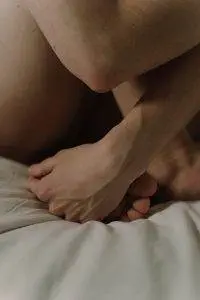
Rash, scaly skin, itchy skin? These could be signs of psoriasis, a chronic skin condition that causes skin to form in thick, scaly, discolored patches, especially on the elbows and knees. Acupuncture and TCM treatment can help relieve psoriasis and address the root causes of this autoimmune skin disease.
Autoimmune disorders stem from the body’s immune system malfunctioning. In the case of psoriasis, the body produces too many skin cells, forming thick scales, known as “plaques,” or a bumpy rash.
As with other conditions that involve skin rashes or other skin problems—like vitiligo, eczema, dermatitis, scleroderma, celiac disease, and lupus—psoriasis tends to flare up periodically, becoming worse for a few weeks or months at a time, and then improving. A psoriasis flare up happens because of widespread inflammation.
What Causes Psoriasis Flare Ups?
Getting a cut or burn on your skin can trigger a psoriasis flare up.
So can infections like a staph infection, strep infection, helicobacter pylori bacterial infection (which can also cause stomach ulcers), or chlamydia.
Viral infections like HIV and hepatitis C can trigger psoriasis. Fungal infections like candida, or yeast infections, can also trigger a psoriasis flare up.
Psoriasis affects millions of people, of all ages. Psoriasis rash can cause intense itching (pruritus), so much so that it can affect a person’s ability to concentrate in daily life and can also have a negative impact on sound sleep.
Medical research has not yet discovered exactly what causes psoriasis, but it may be partly due to genetics and partly due to environmental factors. It is not uncommon for a person to have psoriasis and also have another autoimmune condition, such as lupus, celiac disease, Crohn’s disease or inflammatory bowel disease (IBD), multiple sclerosis (MS), or autoimmune thyroid disease.
Acupuncture and TCM are excellent modalities for helping to relieve the symptoms of skin conditions like psoriasis and many autoimmune disorders. Acupuncture and herbs can help relieve itchy rashes and also help to improve the functioning of the immune system. Acupuncture treatment can also help with the emotional and psychological toll of dealing with psoriasis.
Top 5 Types of Psoriasis
Plaque psoriasis is by far the most common type of psoriasis, accounting for about 80% of cases. Other types of psoriasis are more rare and can be very serious.
- Plaque psoriasis or Psoriasis vulgaris – the most common type of psoriasis; thick scales that are red or pink with a silvery coating on them. These patches, or plaques, can itch intensely.
- Guttate psoriasis – small red or pink bumps that appear suddenly, covering the torso, arms, and/or legs. This condition sometimes clears up and does not return. In some cases, though, it can keep coming back, or later turn into plaque psoriasis. Guttate psoriasis may be triggered by infections, like strep throat.
- Pustular psoriasis – this is a rash of painful bumps that are filled with pus. Generalized pustular psoriasis is an extreme version of this condition, which can quickly cover the whole body and be accompanied by other symptoms like fever, headache, and muscle weakness. Generalized pustular psoriasis is a serious condition requiring medical care.
- Inverse psoriasis or Intertriginous psoriasis – develops in areas where skin folds upon itself, like armpits and around the genital area
- Erythrodermic psoriasis – usually develops as a more severe condition after a person has already been struggling with psoriasis. The skin becomes very red and appears to be burned. The person will feel very ill, with fever and chills and a rapid heart rate. Requires immediate medical attention.
Psoriasis is not only intensely uncomfortable, but the scaly skin can also have a significant impact on a person’s confidence in their appearance. These factors can mean that having psoriasis can have a negative effect on a person’s mental health and emotional health.
Acupuncture, when used as an adjunct therapy for psoriasis and other autoimmune conditions can help address anxiety, depression, and mood disorders, as well as helping with physical symptoms.
Medical Treatments for Psoriasis
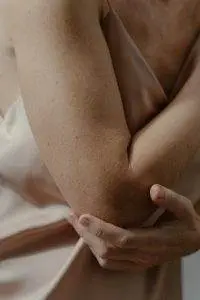
Conventional treatment for psoriasis aims to help slow down the overproduction of skin cells and relieve pain and itching.
Topical Medications for Psoriasis
Topical products are applied directly to the skin.
- Corticosteroids: Frequently prescribed for mild to moderate psoriasis, available in various forms like oils, creams, lotions, etc.
- Vitamin D Analogues: Synthetic forms of vitamin D that slow skin cell growth, used alone or with corticosteroids.
- Retinoids: Available as gel or cream, they reduce skin cell growth and may cause skin irritation and sensitivity to light.
- Calcineurin Inhibitors: Calm the rash and reduce scaly buildup, useful in areas of thin skin.
- Salicylic Acid: Reduces scaling of scalp psoriasis and prepares the scalp to absorb medication more easily.
- Coal Tar: Reduces scaling, itching, and inflammation, available in various forms like shampoo, soap, cream, and oil.
Oral or Injected Medications for Psoriasis
Systemic medications may work on the immune system or on skin cell production to help relieve psoriasis.
- Steroids: Injection of triamcinolone into small, persistent psoriasis patches.
- Retinoids: Pills to reduce skin cell production, not recommended during pregnancy.
- Biologics: Injected drugs that alter the immune system to improve symptoms in moderate to severe psoriasis.
- Methotrexate: Weekly oral dose to decrease skin cell production and suppress inflammation.
- Cyclosporine: Oral calcineurin inhibitor for severe psoriasis.
- Treatment approach based on needs and psoriasis severity.
- Start with milder treatments and move on to stronger ones if necessary.
- Pustular or erythrodermic psoriasis may require stronger systemic medications.
Phototherapy exposes the skin to ultraviolet light under a dermatologist’s supervision. UVB can help slow down cell production. Light therapy may use lamp units with bulbs, or a laser may be used to target very specific areas of affected skin.
Can Acupuncture Help Psoriasis?
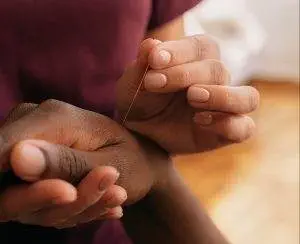
In TCM, elemental factors like heat, wind, dampness, dryness, and so on, are considered to act as pathogens, having a negative effect on bodily systems when they are either in excess or deficient.
According to TCM theory, the root causes of psoriasis may be related to pathogenic factors of excessive heat and dryness. Heat, as a pathogen, can cause redness and itchy skin. Wind can cause dryness of the blood. These conditions in combination can lead to stagnant blood and a fiery heat building up. TCM classifications for diagnosis related to psoriasis would include:
- Blood heat
- Blood stasis
- Blood dryness
- Blood deficiency
An individual, depending on their specific presentation of skin rash and other symptoms, may be diagnosed with a combination of these factors.
In Chinese medicine, the skin and the lungs are connected, with the skin being the outward presentation of what is going on in the lungs. So, acupuncture treatment for psoriasis may focus on strengthening lung Qi.
In other cases, the large intestine may be related; because of dryness, it may not be receiving enough fluid to be able to do the job of moving toxins out of the body.
In some cases, it may be that intense emotions are affecting the liver, causing blood stagnation due to stress. Liver Qi stagnation can cause overheating and for blood to “overflow” from vessels, causing red bumpy rashes.
Thus, herbal remedies and acupuncture treatment will often aim to clear heat, cool the blood, and improve circulation. Many herbs are helpful for this, as well as for helping to reduce inflammation and soothe dryness and itching.
Chinese medicine herbal preparations have been shown by modern scientific studies to inhibit immune-inflammatory reactions, regulate Th cells, and mediate the formation of skin lesions.
Review of scientific studies of TCM for psoriasis have shown that it can be effective for reducing the severity of skin lesions and help prevent recurrences of flare ups.
Acupuncture Near Me for Psoriasis in West Los Angeles
Psoriasis is a painful skin condition that requires special treatment. As an autoimmune condition, psoriasis needs to be addressed on a deeper level, as opposed to simply trying to relieve the itchy, scaly rash on the skin’s surface. TCM offers a holistic way of treating both skin diseases and autoimmune disorders that can bring deep relief. Consider seeking acupuncture as an adjunct treatment for psoriasis.
*This article is for education from the perspective of Traditional Chinese Medicine only. The education provided by this article is not approved by FDA to diagnose, prevent, treat and cure human diseases. It should not stop you from consulting with your physician for your medical conditions. Traditional Chinese Medicine is based on Qi, which is an invisible force that usually cannot be observed by modern science. Because science focuses on testing ideas about the natural world with evidence obtained through observation, these aspects of acupuncture can’t be studied by science. Therefore acupuncture and Chinese herbs are often not supported by double-blind, randomized trials, and they are considered alternative medicine therapies in the United States.
How to Treat Scleroderma With Acupuncture and TCM
By Xiaomei Cai, L.Ac., Ph.D. and Qineng Tan, L.Ac., Ph.D.
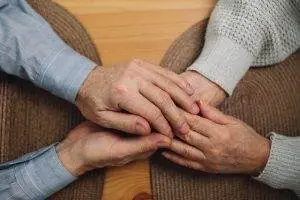
Hard, thickening, tight skin? Itchy, dry skin that is shiny? Changing skin color? These could be symptoms of scleroderma, an autoimmune disorder that causes your body to produce too much collagen. Acupuncture and TCM treatment can help relieve inflammation and pain while helping to resolve the underlying cause of scleroderma.
Scleroderma can be considered a type of dermatosis (skin lesion), and also a type of connective tissue disease (negatively impacting tissues that connect structures in the body), as it usually affects skin and cartilage, often starting in the extremities, and then extending up the limbs towards the trunk.
Collagen is a form of fibrous protein that the body produces to maintain the structure of skin cells, muscles, bones, and connective tissue. The immune system triggers collagen production when we are injured, but in the case of scleroderma, the body is overproducing and accumulating too much collagen.
Localized scleroderma affects primarily the skin tissue, but can also spread to subcutaneous tissues, like fascia and muscles.
In some cases, scleroderma can also impact internal organs, like the esophagus, lungs, heart, and kidneys. This is known as systemic scleroderma.
Top 3 Types of Scleroderma
Localized scleroderma can be differentiated into 3 types:
- Localized scleroderma – a few patches of discolored skin (circumscribed morphea); these skin lesions can vary in size, may be oval shaped, and are usually yellow in the center with a red border.
- Generalized scleroderma – also called generalized morphea, with this type there are more patches of thick, hard skin on various parts of the body, which may overlap.
- Linear scleroderma – more common in children, may show up as one band of affected skin on a limb or on the trunk, with a few patches of morphea. Linear scleroderma on arms and legs may affect the growth and development of that limb, as scleroderma may impact the muscle and bone tissues as well as the skin.
Systemic scleroderma is rare, but happens more commonly in women between the ages of 30 and 50. This type of scleroderma can manifest in different ways.
Systemic scleroderma can sometimes first show up as Raynaud’s phenomenon, or Raynaud’s syndrome, in which the blood vessels in the hands and feet close up when the weather is cold and cause color changes to the skin, as well as sensations of numbness, prickling, tingling, or pain. Stress can also trigger Raynaud’s.
Systemic scleroderma can cause scarring on the skin and internal organs, which can lead to gastrointestinal problems like acid reflux, cardiovascular and pulmonary problems, or renal disease.
Acupuncture treatment can be used as an adjunct treatment to help relieve symptoms of pain related to skin hardening, as well as helping to alleviate heartburn and GERD type symptoms in patients with esophageal symptoms of scleroderma. TCM can also help address the root causes of scleroderma and other autoimmune disorders.
What Causes Scleroderma?
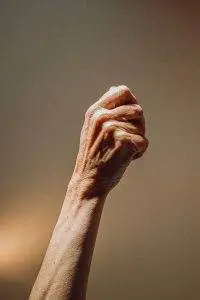
As with most autoimmune disorders, medical science has not yet discovered exactly why some people develop this condition. While it is not passed from parent to child the way genetic diseases are, you are more likely to have scleroderma if someone else in your immediate family has it, too.
It is believed that factors like environmental toxins and/or viral infections can trigger scleroderma symptoms to flare up. The overproduction of collagen is due to abnormal functioning of the immune system.
Because women develop scleroderma more often than men do, it may be that there is a hormonal factor that affects the disease, as well.
Diagnosis and Medical Treatment for Scleroderma
There is no cure for scleroderma, so conventional medical treatments aim to alleviate symptoms and slow down the progression of the disease. The treatment plan may vary depending on the specific manifestations and severity of the disease.
To diagnose scleroderma, doctors rely on a combination of clinical assessments, medical history review, physical examinations, and lab tests. A doctor will first observe skin changes, such as thickening and hardening, then look for internal organ involvement and other symptoms.
Blood tests can help identify specific antibodies associated with scleroderma, such as antinuclear antibodies (ANA), anti-centromere antibodies (ACA), and anti-Scl-70 (anti-topoisomerase I) antibodies. Additionally, blood tests can assess organ function, including kidney and liver function, as well as inflammatory markers.
X-rays, ultrasound, or CT scans may be used to evaluate internal organ involvement, such as lung fibrosis, gastrointestinal complications, and cardiac abnormalities.
A skin biopsy sample may be taken to confirm the presence of fibrosis and assess the degree of inflammation.

Medications that may be recommended for treating scleroderma symptoms include:
- Immunosuppressants: Medications such as methotrexate, mycophenolate mofetil, and azathioprine may be prescribed to suppress the immune response and reduce inflammation.
- Corticosteroids: Oral or topical corticosteroids can help manage inflammation and alleviate symptoms in certain cases. However, long-term use may have potential side effects and is usually minimized.
- Vasodilators: Medications like calcium channel blockers and prostacyclin analogs may be prescribed to improve blood flow and manage Raynaud’s phenomenon.
- Proton pump inhibitors (PPIs): These medications can help manage gastroesophageal reflux disease (GERD) symptoms, which are common in scleroderma patients.
Patients are often advised to make lifestyle changes to manage their condition effectively. These may include:using skin moisturizers and avoiding excessive sun exposure, and using sunscreen with a high SPF, avoiding cold temperatures and stress to prevent triggering Raynaud’s, quitting smoking, and eating an anti-inflammatory diet.
Can Acupuncture Help Scleroderma?
TCM treatment for scleroderma focuses more on addressing the underlying causes of the condition, rather than simply trying to relieve symptoms. An acupuncturist will look closely at the whole person, listen carefully to hear all the symptoms they are experiencing, even those which may seem unrelated, feel their pulse and make other observations, and then ascertain which diagnostic pattern may apply.
According to TCM theory, scleroderma symptoms may occur due to:
- Blood stagnation
- Yang deficiency
- Kidney Qi deficiency or yang deficiency
- Liver and Gallbladder damp heat
- Liver blood deficiency
- Liver win
- Spleen yang deficiency
- Stagnation of cold, wind, and/or damp
Depending on the diagnosis, the TCM practitioner will then plan a treatment protocol to address the root cause, using acupuncture and herbs. For example, herbs can help move stagnant blood, relieving the skin conditions related to scleroderma. Herbs can even help to inhibit collagen production, to help reduce skin hardening.
Acupuncture has been shown to help reduce the number of Raynaud’s attacks.
Moxibustion treatment may also be used to help relieve symptoms related to Raynaud’s phenomenon.
The use of acupuncture for stress relief is also integral to treatment for scleroderma, as stress can trigger a worsening of symptoms.
Acupuncture can help reduce esophageal reflux in cases where esophageal strictures have developed due to scleroderma in the digestive tract and help improve kidney function when kidneys have been impacted by fibrosis.
TCM herbal formulations for scleroderma will be individualized for each patient’s needs. Herbs may be used to help warm and nourish the organs, while clearing dampness and activating stagnant blood and Qi.
Acupuncture Near Me for Scleroderma in Los Angeles
Acupuncture and TCM herbal medicine can be excellent modalities for helping with difficult to treat skin conditions, connective tissue disorders, and autoimmune disorders, including:
- Dermatitis
- Eczema
- Psoriasis
- Vitiligo
- Rheumatoid Arthritis
- Lupus
- Herpes simplex
- Hives, urticaria
- Ehlers-Danlos syndrome (EDS)
If you are experiencing painful skin problems or digestive problems, consider seeking out alternative care in addition to conventional treatments.
*This article is for education from the perspective of Traditional Chinese Medicine only. The education provided by this article is not approved by FDA to diagnose, prevent, treat and cure human diseases. It should not stop you from consulting with your physician for your medical conditions. Traditional Chinese Medicine is based on Qi, which is an invisible force that usually cannot be observed by modern science. Because science focuses on testing ideas about the natural world with evidence obtained through observation, these aspects of acupuncture can’t be studied by science. Therefore acupuncture and Chinese herbs are often not supported by double-blind, randomized trials, and they are considered alternative medicine therapies in the United States.
